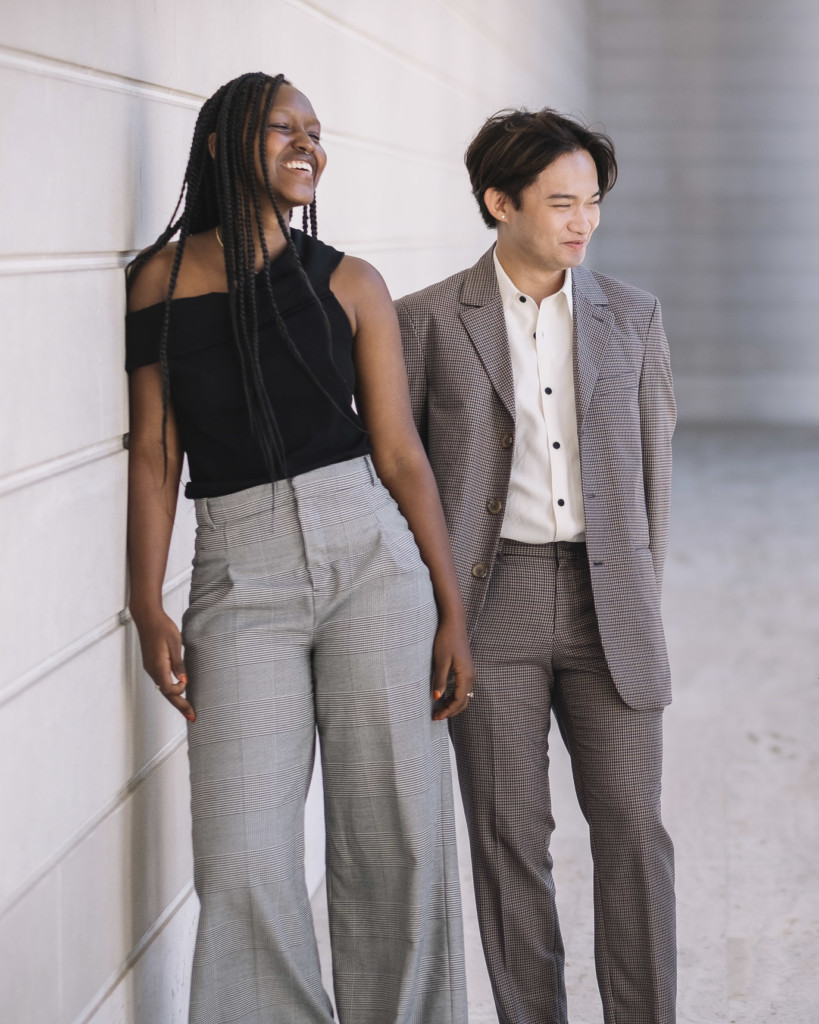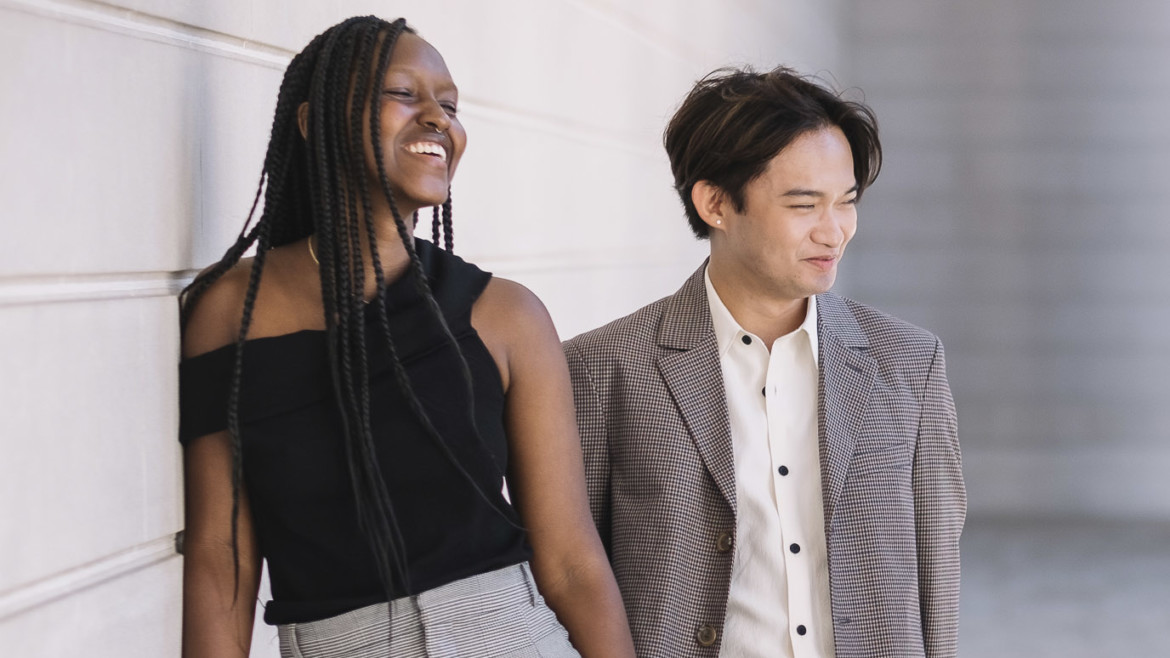By Greta Chiocchetti
Earlier this summer, as Black Lives Matter protests erupted across the country, long-standing conversations about racial equity and inclusivity were at the forefront of our national consciousness. Inspired by the momentum around them, Academy of Art University School of Architecture (ARH) students Kadia Bah and Juke Jose were drawn to continue the conversation and bring it back to school with them.
This semester, Bah and Jose spearheaded the establishment of the Academy’s first National Organization for Minority Architecture Students (NOMAS) chapter with the help of B.Lab Coordinator, ARH faculty, and Community Outreach Coordinator Sameena Sitabkhan, to create a safe space to foster community and discussions about representation and identity.
“NOMAS, while open to all, represents and focuses on students and practitioners who are in the minority within the practice of architecture (people of color and women) with a focus on bringing architecture to urban communities and marginalized people,” said Sitabkhan. “Our student body is incredibly diverse, and this seemed like a perfect fit and allows students to advocate for themselves and the communities around us within an organized chapter.”
Jose and Bah both believe there’s strength in numbers and that bringing students with shared experiences together can only empower them.

“We want to create a platform for students. For me, diversity is not a number—just because we have any percent of minority students or architects around the U.S. doesn’t mean it’s equitable,” said Jose. “So, for us to have an organization like NOMAS in the school, I think that really will open the eyes of students. You have a place for your voice. You can look up to other architects that are successful and look like you.”
According to data collected by the National Council of Architectural Registration Boards (NCARB) in 2019, the architecture industry is largely made up of white men—less than one in five NCARB certificate holders identify as a racial minority, while women make up two out of five. Though that same data suggest the gaps are slowly closing over the years, the current lack of representation in the industry poses a big problem: if designers can’t connect to or recognize the communities they’re designing for, how can they accurately design for those communities?
“We really want to give a platform to minorities at our school, whether it’s to showcase their work and their talent, having networking events, and different field trips and holding space for people to meet and connect,” said Bah. “We just want people to feel like they belong. We want to give a new face to architecture.”
Jose, who immigrated to the U.S. in 2013 from the Philippines, and Bah, who moved from Guinea in 2014, understand the difficulty of not always feeling represented.
“When I came here, I thought, ‘Oh, it’s gonna be fine. It’s gonna be easy.’ But in reality, it wasn’t. I was struggling, getting to know myself as a Filipino person,” said Jose. “And being an immigrant and being exposed to race, because being part of a homogeneous country is different from being in America. Knowing your position, quote-unquote, in society is really eye-opening.”
On Oct. 1, as a part of ARH’s ongoing Diversity and Inclusion webinar series, Bah and Jose debuted the new chapter to ARH students and gave attendees a preview of the conversations to be had. Students answered discussion questions about what safe spaces meant to them, what an equitable future looks like, and what the architect’s role is in creating inclusive and equitable spaces.
“Architecture, in general, as an industry is not diverse at all, whether it’s in gender or in ethnicity, and our school really represents a different aspect of that; there are a lot of women. Juke and I are literally from opposite sides of the planet. So, we need to embrace that and have the space for minorities to be heard,” said Bah.
“We want to thank Sameena Sitabkhan, our faculty advisor, Jen Marrero, secretary, Fennela Njoto, treasurer, ARH undergraduate directors Jennifer Asselstine and Karen Seong, and the entire School of Architecture. We could not have formed the chapter without their support.” – Kadia Bah & Juke Jose
For more information or to sign up for notifications about future NOMAS meetings, please email nomasaau@gmail.com and follow the chapter’s official Instagram: http://Instagram.com/nomasaau.
